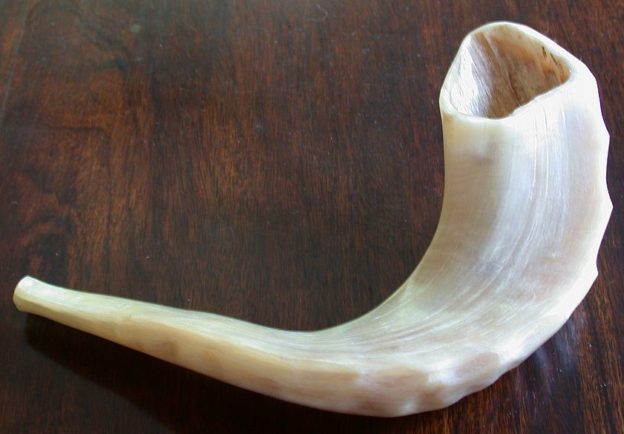Dear Friends,
Today, as I write these words (it’s Sunday), it is the first day of Elul, the last month of the Jewish year and the beginning of the New Year season.
It is customary during this month to recite Psalm 27 every day (download the text in English and Hebrew here) and to blow the shofar (if you have one) every day except Shabbat until the next-to-last day of the month. These things serve as reminders for the spiritual work we need to do during this month.
Most us are familiar with the teaching of the Mishnah, quoted in countless prayer books:
For sins between a person and G-d, Yom Kippur atones, but for sins between one person and another, Yom Kippur does not atone until one appeases the other.
For many of us, the language of sin no longer rings true, and the image of G-d as Judge seems alien. The prayers in the traditional Machzor (High Holiday Prayer Book) might seem like something from another time, from a society we no longer identify with.
But if you clear away the clutter, the season still has a message for us: when we think of G-d as Judge, it means that we need to speak the truth to ourselves—the truth, the whole truth, and nothing but the truth. There so many things that fall into the cracks of our mind and remain there unthought-of. So many things we avoid thinking about. So many pretexts we invent to avoid the pain of self-reproach. And it may even be that at times we need such evasions and pretexts to move forward with our lives. But as the High Holidays approach, we need to put aside these evasions and pretexts and see ourselves as we really are.
And as for sin—well, we may not think of our lives in terms of sin, but people really (all too often) do bad things to each other. Hopefully, our own bad deeds are not truly evil, but often we don’t live up to the standards we set for ourselves. And even more, although we may be good enough, we can do better than merely “good enough.”
Elul gives us a chance to review our lives, to do what tradition calls ḥeshbon ha-nefesh, a spiritual account-taking. The Ten Days of Repentance are hardly enough to do such a serious and sometimes complicated task. Have we hurt or offended anyone? Have we lost sight of our true life goals in the busyness of day-to-day life? Have we lost touch with people we should be connected with? Have our relationships fallen into ruts of mediocrity when they could in fact rise to heights of beauty and excellence?
Elul is the time to begin this review, so that when Yom Kippur comes, we can think back on our year with satisfaction and not regret.
Hayya, Luu, Lily and I wish you all a year of health and happiness.
B’shalom,
Rabbi Jacob
(You can download your copy of Psalm 27 in English and Hebrew here.)

